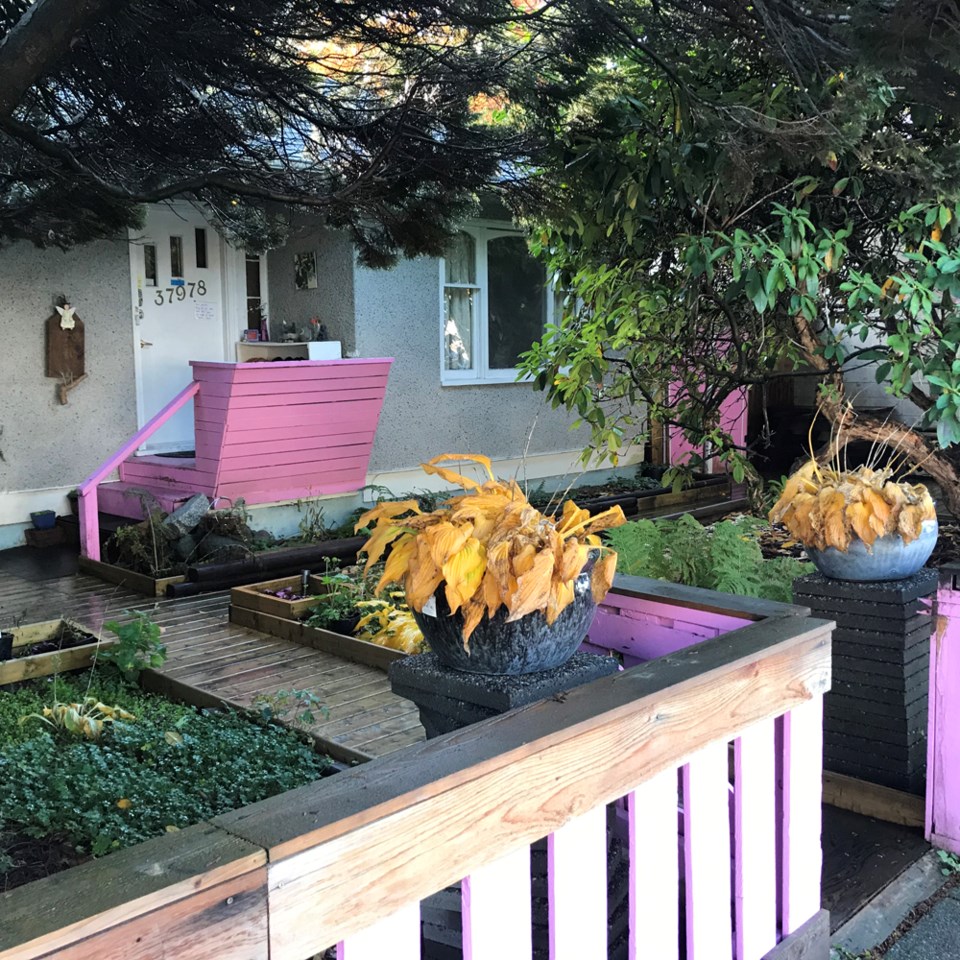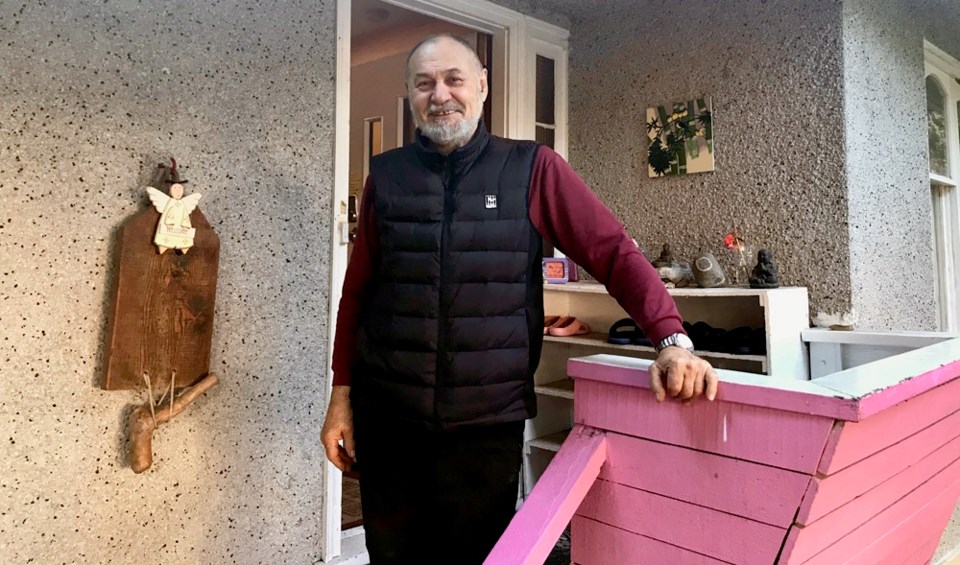On a piece of white foolscap, in black felt is written, "Truth. Love. Work."
The saying, hanging on a corkboard in the kitchen of Squamish Oasis Hostel, is the definition and motto of Ivan Marinov's life.
Marinov and his wife Yulin own the hostel located on Second Avenue across from municipal hall.
The circa 1950s home is recognizable for its bright pink facade.
The Chief sat down with Marinov at his kitchen table for a chat about his history in Squamish, the hostel and why the pink fence.
What follows is an edited version of that conversation.
Q: When did you come to Squamish?
A: I came in 1971 as the first group of tree planters. It was the first replanting operation.
I came from Montreal. I went from a city person to a country boy.
At first, I lived in a trailer and then we found cabins in the Cheakamus valley. You found an empty cabin; you cleaned it up; you carried around a lightweight stove; you lit a fire, kerosene lamps, candles, and incense; put on music. It was Heaven. You could go and get a bucket of water from the Cheakamus River and that was your drinking water for the day.
Q: What did you think of Squamish back then?
A: I fell in love with it within the first hour. I was born in Budapest, Hungary. I saw Squamish with European eyes. The Stawamus Chief alone is a world-class monolith. Then we have Diamond Head and the pilot mountains. People don't look up at them much, but if you look at them, it is beautiful.
And then there are the waterfalls and the Pacific Ocean. There's no better place on the planet than Squamish, if you like the outdoors.
Q: What was your career after tree planting?
A: I went to Vancouver and became a salesman. When I got burned out of that, I went to Taiwan. I was supposed to stay there a month, but they offered me work as an English teacher, right away. That is where I met my wife, Yulin. Later, she and I opened our own business teaching English at home.
We were there 20 years, but had our roots in Squamish and went back and forth. I was looking for a better place than Squamish in South East Asia. Bali almost fits the bill, but I always come back here. We had a summer school here with outdoor activities with English students.
Q: When did you move into this house and start the Oasis?
A: In 2000. We bought a boat and they said we had to have a physical address in Squamish to complete the purchase, so we jumped on this house.
(The main reason I came to the Pacific Ocean is to have a boat. It is a childhood dream for someone born in a land-locked country.
It is a 27-foot sailboat and sleeps five.)
This is the nucleus of the town. It was the slums at one time. This was a crack house, even, at one point.
This house was built in the 1950s and has a lot of charm.
We had a contractor redo everything — the electrical especially.
We started the hostel in 2004. We had to have them change the bylaws, because at first they didn't want hostels at a ground level. Hostels like this are new to North America. They are usually bigger here. But in Asia, but they are usually mom and pop shops.
Q: Why the pink fence outside the Oasis?
A: It stands for breast cancer awareness, gay-friendly and me being a pinko-socialist commie.
Q: What can you tell me about some of the interesting people you meet running a hostel?
A: It is unbelievable. We hardly go out, because the whole world comes to us. the idea is that guests are in a relative's home. It is like I am the imaginary uncle they have never met. I make them feel at home.
We have had people from Sri Lanka, Estonia, all the European countries, Russians, Chile. A lot of Australians and Mexicans come to ski.
I want to attract rock climbers and turn them into sailors. They are already handy with a rope and could climb the mast.
Q: Can you tell me about the Zendō you created at the front of the house?
A: It is simply a Japanese name for meditation. So don't buy Zen shampoo, that doesn't mean anything.
In the Zendo we sit on the cushions and I guide them through conscious breathing. You settle into your own pace — breathe in and out. Then you just listen to the world. Every time you take a deep breath you can stop your thoughts. If you are lecturing someone in your mind or arguing, you can stop that negativity by taking a deep breath and then go back to listening to the world.
Q: Where did your spirituality start?
A: In the 1960s.
In the materialistic world, our poets and songwriters are starting to sing about the spirit. Leonard Cohen with, " Hallelujah." There was God Is Alive Magic Is Afoot," by Buffy Sainte-Marie.
The '60s brought spirituality to the U.S. and I was part of it. It resonated with a lot of people. I finally centred on the Zen Centre of Vancouver. I offer free public meditations daily from 8 p.m. until 9 p.m. and morning meditations from 6 a.m. to 7 p.m.
Q: Squamish is changing so much. What do you make of it all?
A: You can blame me. I have been talking my head off about Squamish for the last 40 years. I always knew what we had here. I knew this was a holy place. If the world economy keeps going the way it is, the rich will discover the best places and I haven't seen a better one than Squamish.
I live off of it. You ride the wave. Don't fight it.
Find out more about the hostel at www.squamishoasishostel.com.





